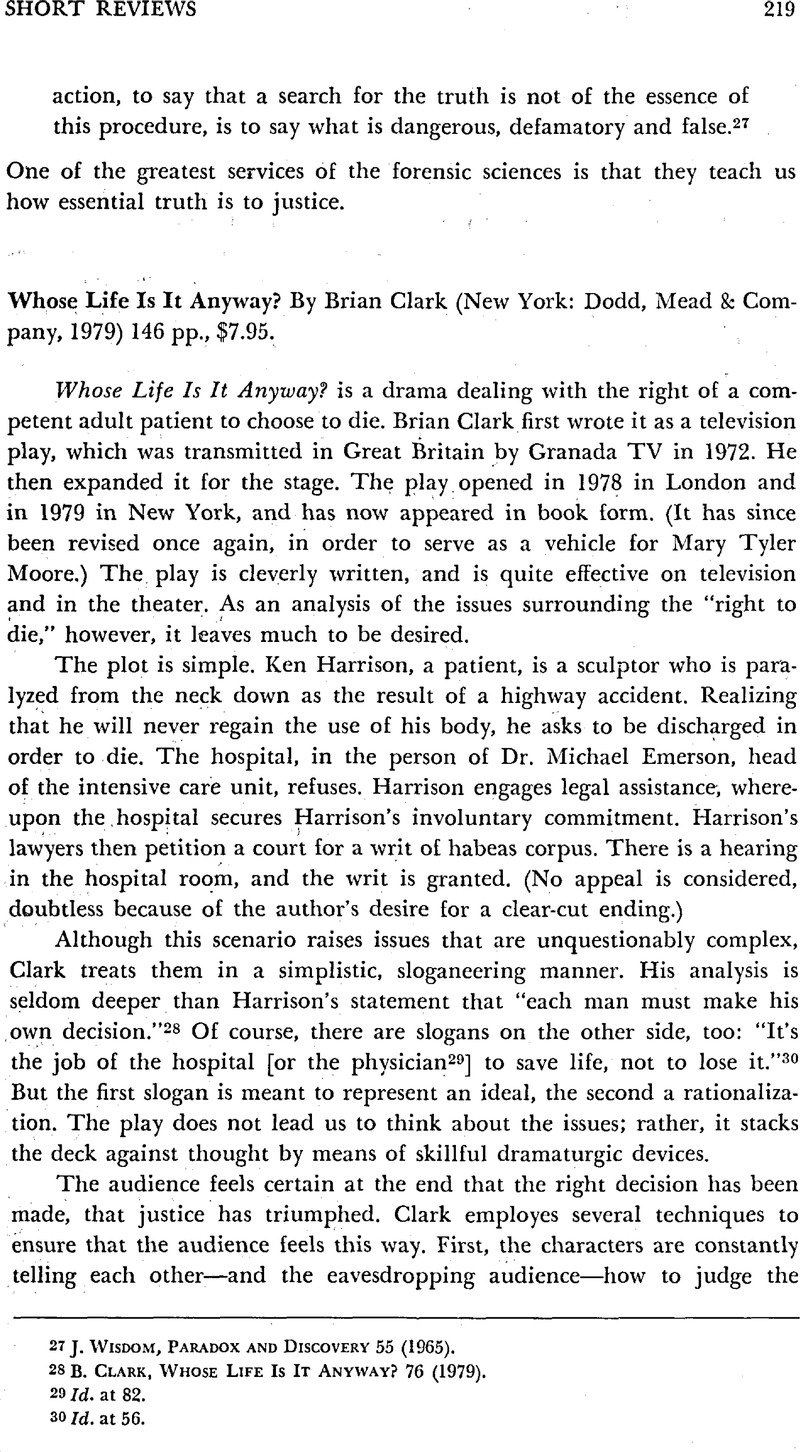Published online by Cambridge University Press: 29 April 2021

27 Wisdom, J., Paradox and Discovery 55 (1965)Google Scholar.
28 Clark, B., Whose Life is it Anyway? 76 (1979)Google Scholar.
29 Id. at 82.
30 id. at 56.
31 Id. at 41, 71, 96, 143.
32 Id. at 91, 136.
33 Id. at 68.
34 Id. at 98.
35 Id.
36 See, e.g., Satz v. Perlmutter, 379 So. 2d 359 (Fla. 1980), in which the Florida Supreme Court held that a competent adult patient with no minor dependents, suffering from a terminal illness, has the right (under the constitutional right of privacy) to refuse or to discontinue extraordinary medical. treatment where all affected family members consent. Admittedly, Harrison’s condition, unlike Perlmutter’s, is not “terminal“; nevertheless, the situations are otherwise quite similar.